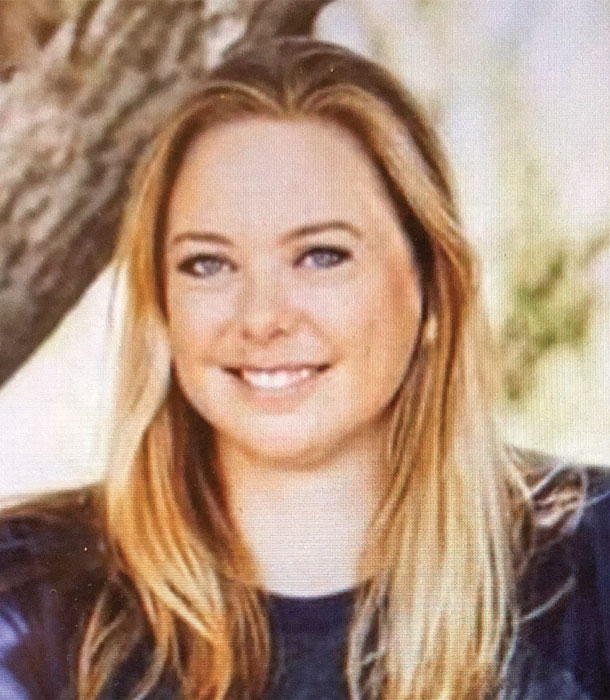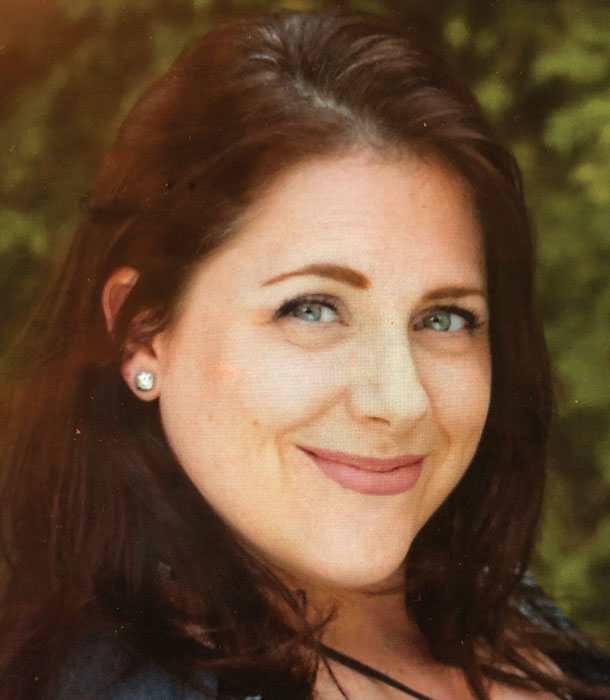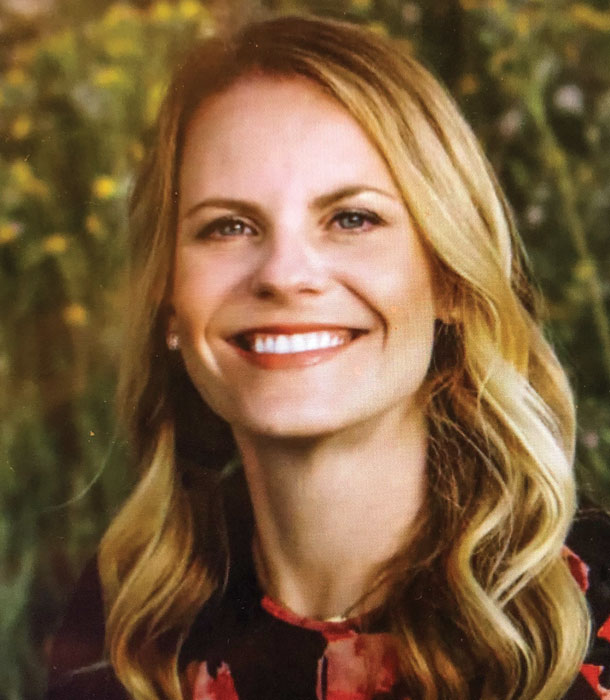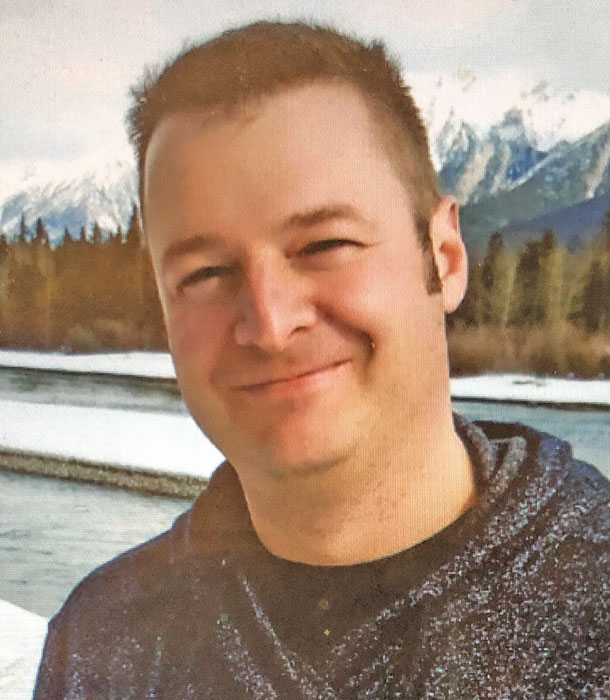Three farmers and a veterinarian talked about managing everyday stress and disruption, as well as the tools and support available to everyone in the industry. Here are the four panelists:

Adrienne Ivey
Saskatchewan
1,000-head cow-calf herd
Yearling grazing program
Grain farm
• Adrienne Ivey ranches with her husband and their two children in east-central Saskatchewan. They have a thousand-head cow-calf herd as well as a yearling grazing program and a grain farm. Ivey shares her ranch life with consumers and advocates for modern agriculture through social media and her blog, “View from The Ranch Porch.”

Dr. Andria Jones-Bitton
Veterinarian, epidemiologist
Associate professor
Director of well-being programming
Ontario Veterinary College University of Guelph
• Dr. Andria Jones-Bitton is a veterinarian, epidemiologist and associate professor in the department of population medicine, and director of well-being programming for the Ontario Veterinary College at the University of Guelph.

Lesley Kelly
Saskatchewan
“High Heels and Canola Fields” blog
Co-founded The Do More Agriculture Foundation
• Lesley Kelly farms with her family in Saskatchewan. She is behind the “High Heels and Canola Fields” blog, where she dispels myths about agriculture and brings consumers and farmers together. Kelly has been a leader in advocating for mental health in agriculture and co-founded The Do More Agriculture Foundation.

Sean Stanford
Alberta
Grain farmer and custom sprayer
Licensed heavy-duty mechanic
Volunteer firefighter
• Sean Stanford is a grain farmer and custom sprayer in southern Alberta. He is also a licensed heavy-duty mechanic and a volunteer firefighter for over 15 years. Stanford was diagnosed with PTSD, anxiety and depression three years ago and actively shares his mental health journey.
Why is health and wellness, especially mental health, important?
IVEY: Through this whole journey of my own discovery about mental health and everything that is involved in that, I have learned so much from so many of the people around me. I’ve not only learned about mental health but really learned a lot about myself and what my own mental health struggles actually are. If I can share any little bit of what I’ve learned and what I’ve experienced, then that can help somebody as much as they have all helped me.
JONES-BITTON: I love agriculture, and I love farmers. I love safe, healthy food; and farmers are the people who provide us all of that. They have been a population that has largely been under-served in terms of their mental health and well-being. I think it’s terrific that all of the efforts that have been made over the recent years have culminated into such amazing programs. I think [it’s important to keep] that momentum going.
KELLY: Mental health is near and dear to my heart for a few reasons. The first is: I have two little boys, and I hope that – it’s not if they go through hard times, it’s when they will go through hard times – they have the support and the resources to help them through those hard times.
Mental health has touched me and my family. I have had postpartum depression. My husband is living with anxiety, and he was having debilitating panic attacks. My brother has post-traumatic stress injury, and all of my family members have had a mental health challenge or a mental illness at a point in their life.
The third reason is: to help our farmers. Our farmers are our most important assets in agriculture, and I hope by being a mental health advocate that I can break that silence and help give hope to our industry that really needs it through hard and challenging times.
STANFORD: It’s really important to me because I know how bad I struggled, and I know there are others out there struggling like I am. It’s really important that people reach out and get the help they need so they can make themselves better for everybody – for their family, for their community, for themselves, especially.
Why do you believe there is a stigma around mental health?
IVEY: Mental health is really something that in general wasn’t talked about, so naturally there was a stigma around it. I also think that as farmers, we are all very proud people and don’t want to be seen as having any kind of weakness, whether it is a mental health weakness or anything else.
I am so thankful to Do More Ag and all of the amazing people that work so hard behind it to try to start changing that whole conversation away from mental health as a weakness into being proud of not only sharing your struggles but sharing with people how you have moved through them.
Stress isn’t a weakness; stress is something every single farmer will face in their lifetime. No matter how good of a farmer you are, you are still going to face a lot of stress and have to learn to manage that. I think the whole conversation has shifted. There’s still a lot more to be done, but I’m so happy to see that it’s in the right direction.
STANFORD: Farmers are really proud people. Sometimes we’re too proud or too hard-headed to ask for help, but we’re just people, and we need help just like anybody else does.
We have a lot of different challenges in our industry that a lot of people don’t have to deal with – like when your whole paycheque for the year depends on weather, that’s a pretty tough pill to swallow. To reach out and ask for help is not a weakness at all.
There are a lot of places you can reach out. I always tell people if something’s not feeling right to start with your spouse or go talk to your family doctor. I went to my family doctor, and he started this whole journey for me. That was one of the best things I ever did.
What advice do you have on recognizing these signs of anxiety or stressor points within ourselves and others?
IVEY: I think that was a really big learning curve for me to be able to recognize in myself what anxiety looks like because it turned out to be way different than what I thought it was. Traditionally, when I think of anxiety, I think of knots in your stomach. When I get anxious, I get very irritable and snappish.
After I had that realization about myself, then I was able to look at the people around me very differently as well. My husband’s stress and anxiety doesn’t always look the same for him as it does for me. Realizing these emotions, feelings and outcomes for what they actually are, then you can actually create some meaningful change and find some better ways to cope and to move through it.
JONES-BITTON: Being in tune with ourselves and self-awareness I think is a huge key.
KELLY: Our farm decided to have a timeout and really put mental health as a focus. We put it on the agenda and make it part of our everyday life. We created a safe space for everyone to talk, to support each other. We sat down and started to really understand what mental health is, how it can have positive impacts on the farm and each other, how we can start to have conversations around mental health, what it looks like for each and everyone individually, and how we can help each other out during those really, really hard times.
For us, it was seeking professional help of how to even start those conversations and then really dig deep as to when I’m stressed out, when I went through a hard time, what does that look like and what do I need?
When I was going through postpartum and Matt was going through anxiety, it was hard for us to really see outside of ourselves, but it was each other, saying, “Hey, I see these signs; this is outside of your normal. I’m here and I’m here to help.” Just having those people around you that know you and know how you are under those stressful situations can really, really help.
STANFORD: I know everybody experiences these things differently, but with me I found I get really irritable. Sometimes when I’m really under a lot of stress, I don’t sleep. I don’t eat properly. I just sometimes don’t feel like doing anything at all. It’s a change in your normal habits that usually means there’s some sort of underlying issue, whether it’s stress or whether it’s anxiety or maybe something worse going on.
What tools and skills have helped you through these challenging times?
JONES-BITTON: If we’re struggling, I think it’s really important that we’re reaching out to friends and family, trusted people in the agricultural community that can be an important first step. Where the struggle is fairly large, we might want to look to professional help for that. Oftentimes, the first start is the family doctor or Canadian Mental Health Association. Do More Ag has a fabulous resources webpage where they’re continually adding by province who’s available and trying to focus on counselors or service providers who have an understanding of agriculture – because that is so crucially important to farmers.
Then, if I told you right now that if you want to be well you should be sleeping well, you should be getting physical activity, you should be eating well, it’s going to go in one ear and out the other. That’s something we all know that we should be doing. Much like farmers will plan a crop or plan a year, it comes down to planning. What am I going to prioritize now for my well-being? What one thing can I focus on in the next week, in the next month? Then slowly build from there.
KELLY: We started to read, ask questions and look for those resources. My husband and I took [Mental Health First Aid a few years ago] and I wish I would have taken it decades ago. It’s essentially just like life skills of how to talk about mental health, giving you the skills and the tools of having these conversations, knowing what to look for, how to take care of yourself and those around you, and what to do in some crisis situations. I hope to take it again really soon because there’s so many things that you can learn out of that.
STANFORD: I found the Rooted in Strength book by [Farm Credit Canada] FCC to be a really good source of information. They have a chart in there with the red, amber and the green, and there’s a list that will guide you along [based on your symptoms] as well.
How do you make time for self-care?
IVEY: One thing that has been really important for my mental health has been focusing on my sleep. For me, sleep is a double-edged sword. When I’m stressed, I don’t sleep – and when I don’t sleep, I get stressed. Being really disciplined about my sleep habit is a huge game-changer for me and something that has really changed how I can cope and handle things for sure.
COVID has thrown a wrench into pretty much everything, outside of the farm. As far as being a busy mom with very active kids and homeschooling, what we have really tried to focus on is seeing COVID as a blip in time. We have opportunities right now that we will never, ever likely have. We’ve had better family time in the past three months than we’ve had in years. We’ve had opportunities to spend time together, doing things like fishing. My kids have always been really active on the farm, but now they’re even more active. We are very purposefully seeing COVID as something to take advantage of, rather than something to just get through.
JONES-BITTON: We tend to embrace that all-or-nothing mindset. I’m going to start cooking healthy, or I’m going to start getting physical activity every single day. Then, when we miss the first day and then miss the second day, you’re like, “Well, I blew it; I’ll wait till next week.” We probably wouldn’t do that in other areas of our lives, like if you miss something important on the farm, you’re probably not going to blow it off for the whole rest of the week. You’ll pick up where you missed, and you keep going.
I think the key is finding those little pieces of time. I love the idea of walking when you’re filling the sprayer … or when milking the cows, bring a skipping rope into the barn and get some activity that way. Connect with friends in a five-minute interval. We need to find small ways to bring wellness into our daily life.
KELLY: Self-care does have some stigma of taking all the time to yourself. Essentially, it’s not being selfish; you do need to make yourself the number one priority.
When we first started talking about self-care on the farm, all of the guys were going, “Whoa, I’m not doing bubble baths and yoga.”
For me and my husband, it was really taking the time to figure out what we needed, and it was different for both of us. Matt needed time individually; he liked to write in journal to get everything that he was thinking out. For me, I love to run or do things with my friends. Just knowing that, and giving people the space to say, “Hey, if you’re going through a hard time, take the five minutes or take the five hours to do what you need to be healthy.”
Then there’s preventative stuff that we’ve been trying to do: eating healthy, sleeping better, taking time with the family and being outside. Sports has really helped us to come together as a family. It’s just doing things that bring us joy, fill up our cup, and for everyone it’s different. Getting off the farm is very important to having that break where you can connect with your spouse or your loved ones, and even talk about things other than the farm, which is really important too.
STANFORD: I found that everybody needs something a little different to be able to make themselves feel better and feel happy. Lesley wants to have bubble baths and go running, and I don’t want to do either one of those things. When I get time, I like to ride my motorcycle and go mountain biking. I walk a lot. During the day, when I could be riding the quad or driving the truck somewhere, I’ll just walk around the farm instead. That helps me get some fresh air and breathe a little bit.
I don’t have hours where I can run off to the city and do something, so I just try to make little bits of time, wherever I can. When I’m filling the sprayer, I’ll go for a walk and stretch my legs or answer a couple text messages and talk to some friends for a minute.
Understanding mental health, when you or other people around you are dealing with anxiety or stress and finding your way through it with the help of family, friends and available resources will improve the sustainability of your farm. ![]()

-
Karen Lee
- Editor
- Progressive Dairy
- Email Karen Lee









